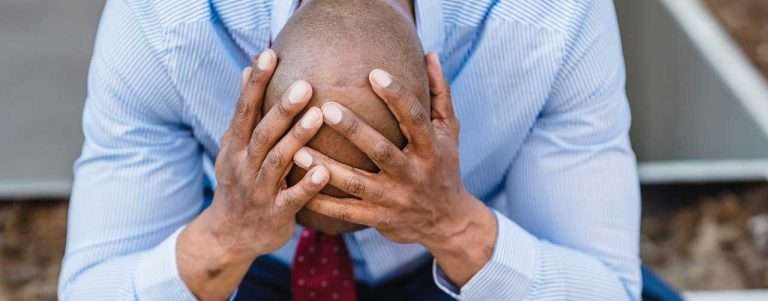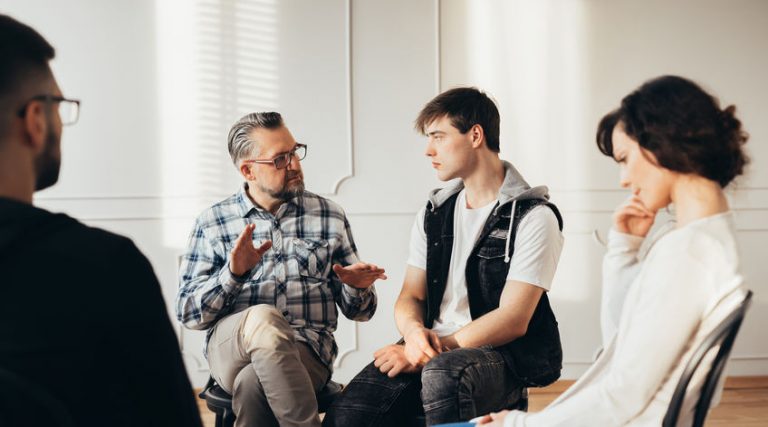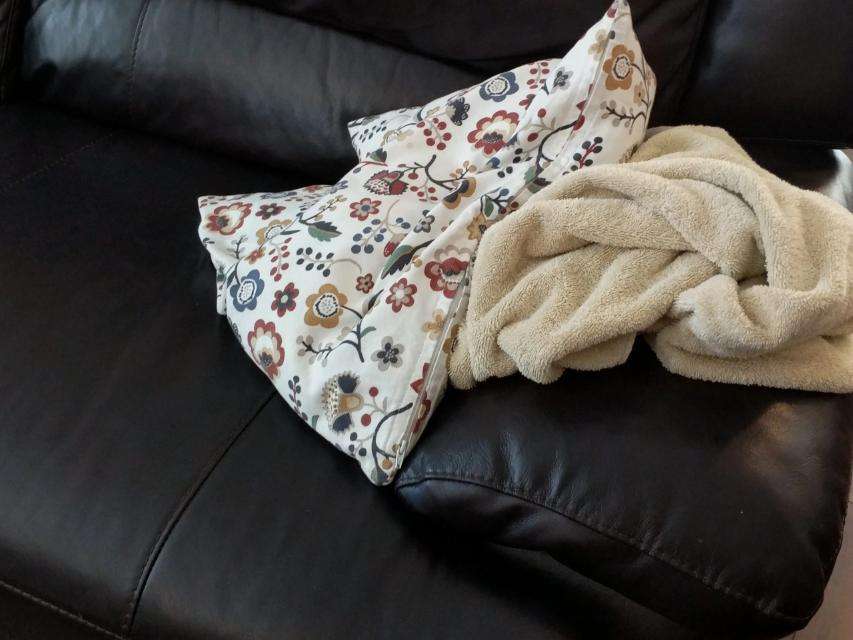Since getting drunk can mean inhibited cognition, slurred speech, stumbling instead of walking, and decreased motor skills, it’s not hard to imagine what it’s doing to your ability to sleep. The bad news is that it’s even worse than you think and a lot more complicated.
Researchers have spent nearly a century studying the effects of alcohol on sleep among different groups of people — non-alcoholics, people who suffer from sleep disorders, and alcoholics — and the findings are interesting and significant. We’ll summarize some of those major research milestones in this article, as well as debunk myths about alcohol as an antidote for sleep disorders.
Alcohol’s effects on sleep, as you’ll see, depend on your overall health, your age, how much you drink and how close to bedtime you drink. Interestingly, its effect also depends on your sleep state — one study suggests that while a “nightcap” before bed might help you fall asleep faster, it has a bigger negative impact later on, during deeper stages of sleep. More on that in a moment.
First, a quick review of sleep stages, because it’s important to understand what a normal night of sleep looks like, so you can understand how alcohol negatively affects sleep.
How Does Alcohol Affect Sleep?
While alcohol may initially help you fall asleep faster, it can disrupt your sleep later in the night as the body metabolizes the alcohol. Alcohol can cause you to experience lighter, less restful sleep and can also lead to frequent awakenings.
Why does alcohol mess with my sleep?
Alcohol can interfere with the normal production of hormones and chemicals in the body that are involved in regulating sleep, such as melatonin and serotonin. As a result, alcohol consumption can disrupt your natural sleep-wake cycle and can lead to insomnia and other sleep problems.
What does a normal night of sleep look like?
You probably remember from basic biology that humans have a sleep cycle that travels between REM (rapid eye movement) and non-REM sleep. During non-REM sleep, you’re in a lighter state of sleep. It might be easier to wake you during this time. Your brain waves start to slow down, your heartbeat and breathing slow, and your muscles relax.
REM sleep is the deep sleep, where we are difficult to wake. This is when most dreams occur. Our eyes move back and forth (hence the REM name), and our heart rates, breathing and blood pressures become similar to levels we experience when we are awake. One big difference between normal REM and the wake state, however, is that our muscles are paralyzed, so we don’t act out our dreams during sleep.1
The typical night’s sleep is in four stages:
- Stage 1: The first few minutes of non-REM sleep when you transition from wakefulness to sleep.
- Stage 2: The period of light non-REM sleep that’s just before deep sleep where body functions slow and relax.
- Stage 3: This period of non-REM sleep is the deep sleep state we need in order to feel refreshed in the morning. In the first half of the night, we experience longer periods of stage 3 non-REM sleep; as we approach morning, this stage lessens.
- Stage 4: REM sleep happens about 90 minutes after falling asleep in a healthy person.
What stage of sleep is most disrupted by alcohol?
Alcohol can disrupt all stages of sleep, but it is most likely to affect the latter stages of sleep, known as deep sleep or slow-wave sleep. Deep sleep is a vital stage of sleep that is important for physical and emotional rest and repair. During deep sleep, the body is able to restore and regenerate tissues, build bone and muscle, and strengthen the immune system. Alcohol consumption can reduce the amount of time you spend in deep sleep and lead to less restful sleep. As a result, you may wake up feeling tired and unrefreshed, even if you have slept for a full night. In addition, alcohol can also disrupt the rapid eye movement (REM) stage of sleep, which is when most dreaming occurs. Disruptions to REM sleep can affect your mood, memory, and cognitive function.
Research: Does alcohol help you fall asleep?
The short answer to the question of alcohol helping us fall asleep is “yes”; however, it’s followed by a big “but.” Yes, alcohol can help you fall asleep, but it will likely cause restlessness during later stages of sleep. Here’s what research tells us…
A landmark study in 1939 set the tone for alcohol’s effects on sleep disorders. It is an often-cited study that was the first to describe alcohol’s effects on sleep for healthy non-drinkers. The researcher found that alcohol consumed within an hour of bedtime lowered the test subjects’ body temperatures during the first part of sleep, which was followed by an increase in body temperatures.2
This has become known as the “rebound effect” of alcohol on sleep: While alcohol might help you fall asleep faster and deeper, once it leaves your body, your body rebounds even more in the opposite direction.2 This is why some people who have a cocktail before bed might find themselves wide awake around 2 a.m.
Find help: Drug Rehab Orange County
Another study built on those findings by testing more than 4,000 subjects in their real-world settings.3 The researchers examined sleep recordings of the subjects from two nights; one night they had consumed alcohol, and the other night they hadn’t. They found that even low, moderate drinking before bedtime can negatively impact the restorative quality of sleep. Those who consumed moderate amounts of alcohol experienced a 24% decrease in restorative sleep; those who consumed high amounts of alcohol saw 39% less restorative sleep.
One other group of researchers reviewed all the scientific research about sleep and alcohol and drew the following conclusions4:
- At all dosages, alcohol can make us fall asleep faster.
- At all dosages, alcohol shortens the first half of your night’s sleep.
- At all dosages, alcohol causes sleep disruptions in the second half of your night’s sleep.
- At all dosages, your first REM sleep stage is significantly delayed, and you get less REM sleep.
Is alcohol an insomnia cure?
Not only is alcohol not a cure for insomnia or any sleep disorder, it can contribute to sleeplessness and alcohol dependency.
Our bodies are regulated by a 24-hour master biological clock that governs our circadian rhythm, which alcohol tampers with. The circadian rhythm regulates our bodies’ processes — metabolism, cardiovascular, brain power, depression and moods, sleep, etc., so when we drink alcohol, we’re tampering with our bodies’ systems.
Because alcohol relaxes us, when we drink before bed, it can worsen the symptoms of apnea and even cause sleep apnea symptoms in people who do not have obstructive sleep apnea.6
Another way alcohol affects our sleep is by tampering with the hormone called melatonin, which we need because it helps us regulate our sleep cycles. A study in 2007 showed that one drink before bedtime can decrease melatonin by 15% to 19%.5
What is the best nightcap for sleep? What alcohol helps you sleep best?
We’ve dispelled the myths that a nightcap before bed will help you sleep better and presented scientific evidence that alcohol doesn’t actually help you sleep better, but that leaves a few questions unanswered.
What time of day is best to have alcohol?
“The Sleep Doctor” Michael Breus, M.D., recommends only 2-3 alcoholic drinks per week, and not before bedtime. One cocktail after work, a beer in the afternoon, or a glass of wine with dinner will metabolize enough ahead of time not to interrupt, or to minimally interrupt, your sleep. For more recommendations on alcohol consumption, symptoms, and signs of alcoholism, visit our alcohol addiction resource.
What should I drink before bed?
Instead of alcohol, consider an herbal tea with ingredients like chamomile, ashwagandha, or valerian root. Warm milk contains tryptophan, which, as we know from Thanksgiving lore, helps us relax and sleep. We’ve also read that banana smoothies before bed can help you sleep better — blend a banana with some almond milk, regular milk or milk of your choice, along with a heaping spoon of almond butter. The ingredients contain potassium and magnesium, which help you relax.
How can I sleep better after drinking?
Obviously, the best solution to avoid a disrupted night’s sleep is not to drink, or to have only one or two drinks early in the evening. If you have sleep issues, it might be time to talk to your doctor about conducting a sleep study, to rule out any underlying medical diagnosis.
If you do drink before bed, it’s important to stay hydrated — with water, not with more alcohol. Try alternating alcohol with water, and as the night goes on, taper your drinking so your alcohol is consumed earlier. Cut yourself off early, so your body metabolizes the alcohol before you go to bed.
A warm cup of herbal tea with honey (which will help refuel your body during the night) before bed might also help you sleep better.
Experts also recommend getting your bedroom ready for a good night’s sleep by making the bed, closing the curtains, and silencing all electronic devices.
What if I can’t sleep without alcohol?
If you’ve become dependent on alcohol for sleep, you may have a problem that needs professional help. Reach out to one of our counselors for a confidential consultation and learn about options that Cornerstone offers. We are available 24 hours a day, seven days a week.
Need Help with Alcohol Abuse?
Cornerstone of Southern California specializing in the treatment of alcohol abuse. After an initial assessment to determine the right treatment setting, we often begin with a detox program in Orange County, to detoxify and clear the body from any drugs or alcohol, following by a series of step-downs in treatment and support from inpatient, to IOP, to outpatient, and ultimately to our alumni program, where we have fostered a communicated of support for long-term recovery and a better, sober life.






